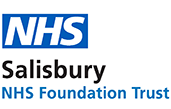

Our Strategy 2022-26 is a key step for the hospital as we set our future plans and priorities and the Strategy contains important commitments we are making to our community over the next five years. Our Vision underpins the strategy - to provide an outstanding experience for our patients, their families and the people who work for and with us.
The strategy confirms our new priorities which are:
These three priorities will guide how we work in the future as part of an integrated care system – publication of the strategy is the first step in using these priorities to continuously improve the way we work and focus on the things that are most important to our communities and staff. We look forward to working with you to make our strategic priorities a reality.
The Trust's non-financial performance is assessed and monitored in the following areas:
Monitor reviews the Trust's performance quarterly against a number of key performance measures. These include: waiting times in A&E, waiting times for patients with cancer, waiting times from GP referral to treatment, and rates of hospital acquired infections.
The Trust Board also receives an update on the Trust's performance four times a year during public meetings. Trust Board meetings are held in public once every two months.
Details of Trust Board meetings, agendas and papers.
The Trust is registered with the Care Quality Commission (CQC). The CQC assesses the Trust’s compliance against a number of key essential standards.
Until 2010, the Care Quality Commission gave an assessment of health organisations against a range of different performance indicators (some 25 indicators in all, including those reviewed under the compliance framework). On the basis of these indicators, the former Healthcare Commission award a rating of poor, fair, good or excellent for a Trust's performance in providing good quality care and using its resources effectively. In October 2008 Salisbury NHS Foundation Trust was assessed as being good for quality of care and excellent for use of resources, putting it in the top 24% of organisations at the time.
All NHS Hospital Trusts were required to make an annual declaration to the Care Quality Commission stating their compliance with the Standards for Better Health.
Each year the Trust has to publish a Quality Account. These set out our priority areas for the coming year and our performance against a range of quality indicators. This is a legal requirement and Quality Accounts are audited in much the same way as financial accounts to ensure that hospitals have effective systems in place to assure the quality of care, and that patients have access to a greater range of information that can help them judge the standard of their local hospital. Trust Quality Account.
All hospitals have to carry out national patient surveys. For each survey, a random sample of people who have used hospital services are asked to complete a detailed questionnaire to gauge their experience of hospital care. The results are published on the CQC website. The Trust develops actions plans to address weaknesses and areas for improvement. These are reviewed at Trust Board level.
In addition, all hospitals now ask patients whether they would recommend the hospital as part of the national Friends & Family test.
On the 30 January 2023, we announced our plans to build a new inpatient ward at our hospital. This state-of-the-art facility will provide 24 additional beds in an environmentally sustainable building that has included a lot of design input from our clinical teams.
On this page, we'll share periodic updates on the build progression, along with this link for some of the latest photos and video footage.
March to May 2023
Demolition of existing buildings began in March and construction of the main building got underway in May.
The demolition took just three weeks to complete including stripping the original buildings, and segregating the contents for re-use and re-cycling in many different ways.
June 2023
The construction phase is now underway including ground work to dig the foundations and installing drainage for the new building.
The two pictures below show on the left work before demolition started, and, on the right the site as at 12th June.

Our staff at Salisbury District Hospital have long been well regarded for the quality of care and treatment they provide for our patients and for their innovation, commitment and professionalism. This has been recognised in a wide range of achievements and it is reflected in our award of NHS Foundation Trust status. This is afforded to hospitals that provide the highest standards of care.
